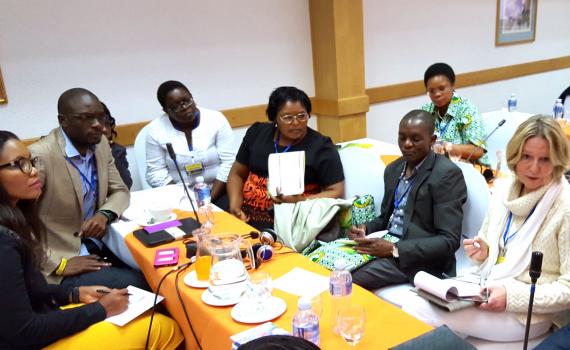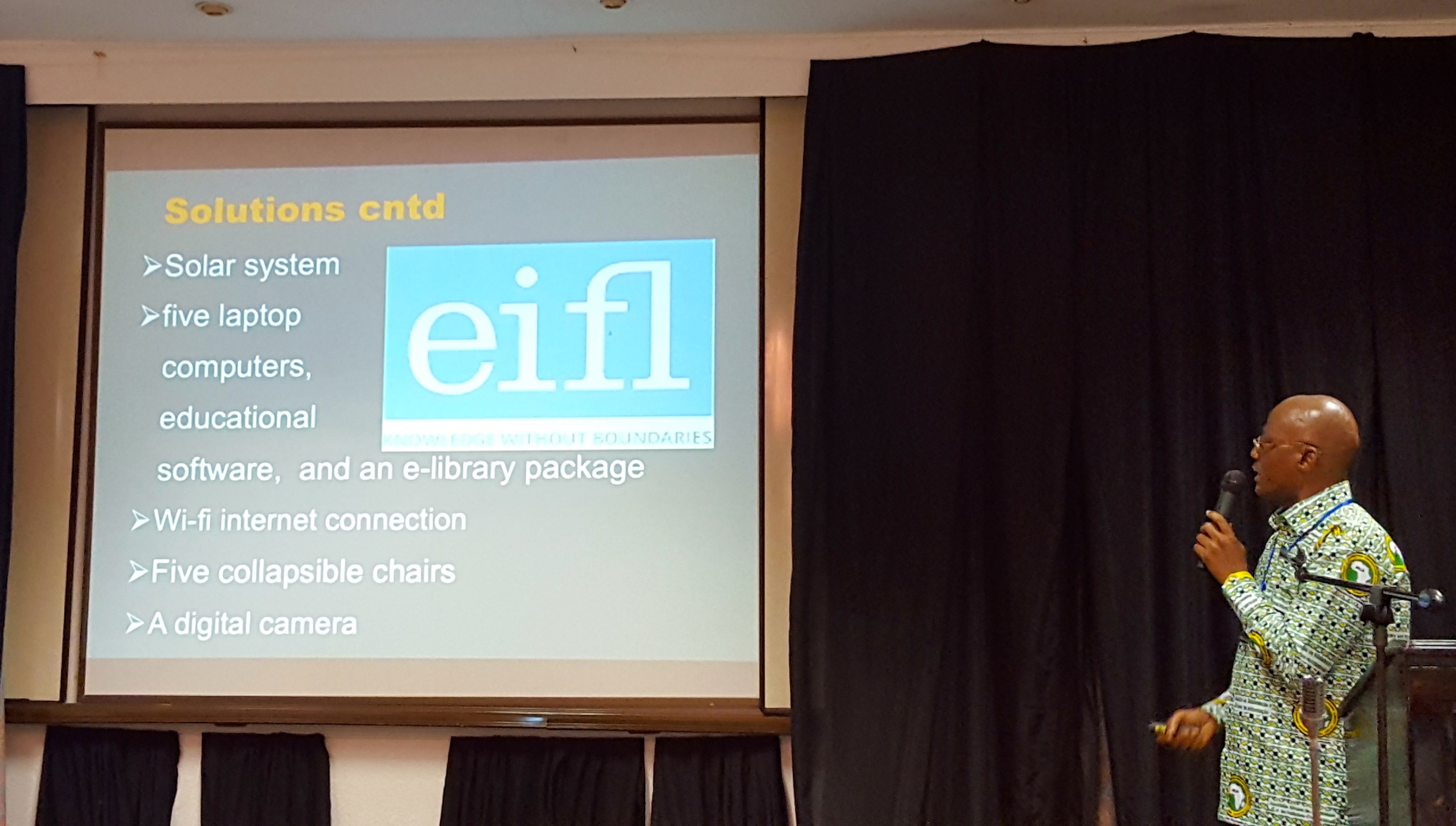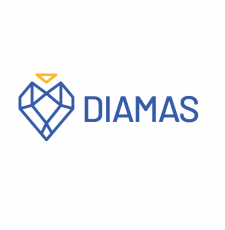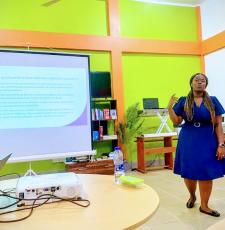
EIFL Public Library Innovation Programme (EIFL-PLIP) manager Ramune Petuchovaite attended the 2nd African Public Libraries Summit in Mbabane, Swaziland, from 30 April to 1 May 2016. Ramune was inspired to meet a new corps of young African library leaders and to see them engage in lively discussion about library innovation and community development.
The 2nd African Public Libraries Summit in Mbabane, Swaziland, was inspiring and energizing. Clever planning meant participants had time to engage properly in discussion after presentations, and to explore emerging themes thoroughly. Especially exciting were ‘unconference’ sessions – unstructured time in which participants could exchange ideas and share experiences about particular topics that interested them.
Young librarians from the African International Network of Emerging Library Innovators (INELI) training programme addressed the need for change and innovation – “to make African libraries happening places”, as Dr Victoria Okojie from Nigeria put it – with spirit and determination. Speakers noted that digital technology, for example e-readers which make reading possible anywhere at any time, change the work of librarians, opening new opportunities for innovation and non-traditional services.
The INELI group was brought to the summit by the conference organizers, the African Library and Information Associations and Institutions (AfLIA), which also organized the event. EIFL sponsored a team of six public librarians – representatives of grantee libraries and participants in EIFL’s capacity building programmes in Ghana, Kenya and Uganda, and it was great to see them mingling, learning and contributing.
I am proud to say that presentations by EIFL-PLIP grantees went down well and sparked considerable interest. Mary Kinyanjui, of KNLS/Kibera Public Library (Kenya) spoke about the contribution of the library’s EIFL-PLIP-funded tablet computer education project for slum school children, and Alikem Tamakloe, of Volta Regional Library (Ghana) spoke about the library’s successful EIFL-PLIP funded mobile computer classes for rural schools. Both projects were mentioned as good examples of library service innovation by several other speakers during the unconference sessions.
INNOVATION, TECHNOLOGY AND COMMUNITY NEEDS
The conference centred on three themes – innovation, technology, and what communities need and want from their libraries. Another theme that we kept returning to was the role that African libraries can play in development by helping to achieve the UN 2030 Sustainable Development Goals (SDGs) and the African Union Agenda 2063.
In a particularly inspiring presentation, Irene Onyancha of the Public Information and Knowledge Management Division of the United Nations Economic Commission for Africa (UNECA), reminded us that access to information is a cross-cutting issue supporting achievement of all the SDGs. Access to information is not a development outcome but a development catalyst, Onyancha told the gathering.
Libraries, she said, had a vital role to play in providing affordable public access to information for practically every development priority. She gave several examples to illustrate the point – of libraries promoting literacy, helping to bring government services closer to communities, teaching ICT skills, providing information about small businesses, farming and health, supporting research and study, encouraging HIV/AIDS testing, and many others.
She called on librarians to work to shift negative perceptions of libraries as poorly resourced, static institutions by demonstrating the remarkable contribution many are already making in relation to the SDGs.
FINANCIAL SUSTAINABILITY OF LIBRARIES
In a thought-provoking presentation, Carolyne Kirabo of Yunus Social Business suggested models of financial sustainability for community libraries.

Kirabo illustrated the models with case studies from Uganda, for example, of Bwera Information Centre, which is planning to buy a tractor to rent to farmers, and Kitengesa Community Library, which is building a guesthouse to accommodate foreign visitors and others who come to the library to work as volunteers, to conduct research, etc. Both libraries will use income generated from these activities to improve and expand their information services.
THE CONFERENCE ON SOCIAL MEDIA
Not all the action was in the conference hall – participants took part in lively social media interactions. See the interactions on the African public library network Facebook page, where Gertrude Kayaga-Mulindwa , National Librarian of Uganda and a mentor of the INELI group, published resolutions for actions by young innovators (you can request membership from the page moderator to join group discussion). Delegates tweets during and after the conference (check out #APLSummit) give a strong flavour of the event.
I look forward to the next AfLIA conference in 2017 in Addis Ababa, Ethiopia, and to finding out how many of the resolutions from the Swaziland event have been realized.
Read Public Library’s Golden Pathway to Successful Service: Understanding Community Needs, Ramune Petuchovaite’s presentation to the 2nd African Public Library Summit, and see the accompanying PowerPoint presentation.
SHARE / PRINT








